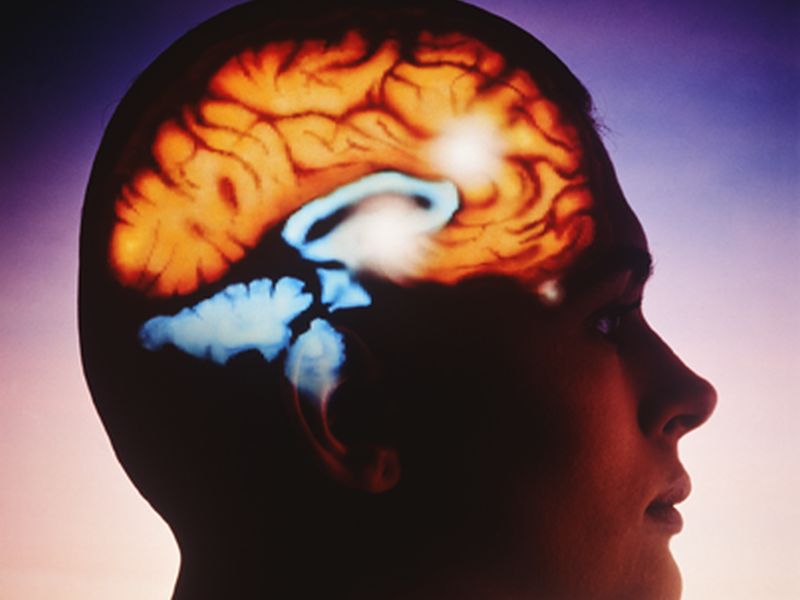
THURSDAY, Oct. 5, 2017 -- Boys affected by a rare but deadly neurological illness made famous by the movie "Lorenzo's Oil" may have new reason to hope, with gene therapy showing long-term promise in a new study.
The disease, called adrenoleukodystrophy, affects about one in every 21,000 boys and occurs when boys lack one copy of the X chromosome. This leaves them unable to manufacture a protein that helps break down certain fatty acids. Acid buildup then begins to attack nerves, muscles and the brain.
Most boys with the disease do not reach adulthood.
Related
Until now, the only viable treatment has been a kind of stem cell therapy, but it comes with dangers and only one in five boys with the disease can find a suitable stem cell donor.
But the new gene therapy, reported online Oct. 4 in the New England Journal of Medicine, gets around that problem. Doctors remove the boy's own stem cells, genetically alter them in the lab so they now carry the missing gene behind adrenoleukodystrophy, and then inject the altered stem cells back into the patient.
Fifteen of the 17 boys who tried the therapy in the new study are neurologically stable and have no disability two years later, according to a team led by Dr. Florian Eichler, of Harvard Medical School in Boston. All of the boys had a severe form of the disease, affecting the brain.
Writing in a journal editorial, Dr. Marc Engelen, of Emma Children's Hospital in Amsterdam, said that he believes the treatment "will have a positive impact on the lives of our patients."
"For many years, gene therapy has shown great promise, but clinical applications have always seemed just beyond the horizon," Engelen wrote. But the new approach "appears to be poised as a real treatment option for cerebral adrenoleukodystrophy," he added.
Paul and Liliana Rojas, of Dover Plains, N.Y., have two sons -- Brian, 7, and Brandon, 10 -- affected by adrenoleukodystrophy. Because the therapy is only effective when used early in the disease, Brian was able to get the treatment while his older brother was not, the couple told the Associated Press.
According to his parents, Brandon appeared to be a typical child until about the age of 7, when he began to drool and experience learning problems at school. His adrenoleukodystrophy diagnosis came three years ago, and at the time doctors advised that Brian get tested, too.
"We were driving to one of the Disney parks and had to pull over to get the call," Paul Rojas told the AP. "Once we got off the phone, we both looked at each other and said we need to move forward now and save our younger son any way we can."
The new treatment is likely to be expensive. According to Engelen, a similar therapy, used for another rare disease, had a price tag over about $1 million per patient.
According to the AP, costs for the boys treated in the study were covered by government grants and the therapy's maker, Bluebird Bio Inc., of Cambridge, Mass.
And not all of the boys benefited, the researchers noted. Two of the 17 boys died -- one from the disease itself, and the other from complications linked to a donor transplant after the boy had withdrawn from the study.
Will this treatment receive approval from the U.S. Food and Drug Administration? Current FDA rules require that outcomes for gene therapy recipients be tracked for 15 years, so the boys in the Boston trial will continue to be monitored. Speaking to the AP, lead researcher Dr. David Williams said that eight more boys are being enrolled into the study as Bluebird seeks approval for the treatment in the United States and Europe.
Adrenoleukodystrophy first came to public attention with the release of the movie "Lorenzo's Oil" in 1992. The film depicted the true-life fight of one couple to develop their own treatment from olive and rapeseed oils to help their son, Lorenzo. While the treatment didn't turn out to be a cure, Lorenzo died in 2008 at age 30, two decades longer than most patients' expected lifespan.
More information
There's more on adrenoleukodystrophy at The Stop ALD Foundation.
Copyright © 2017 HealthDay. All rights reserved.














